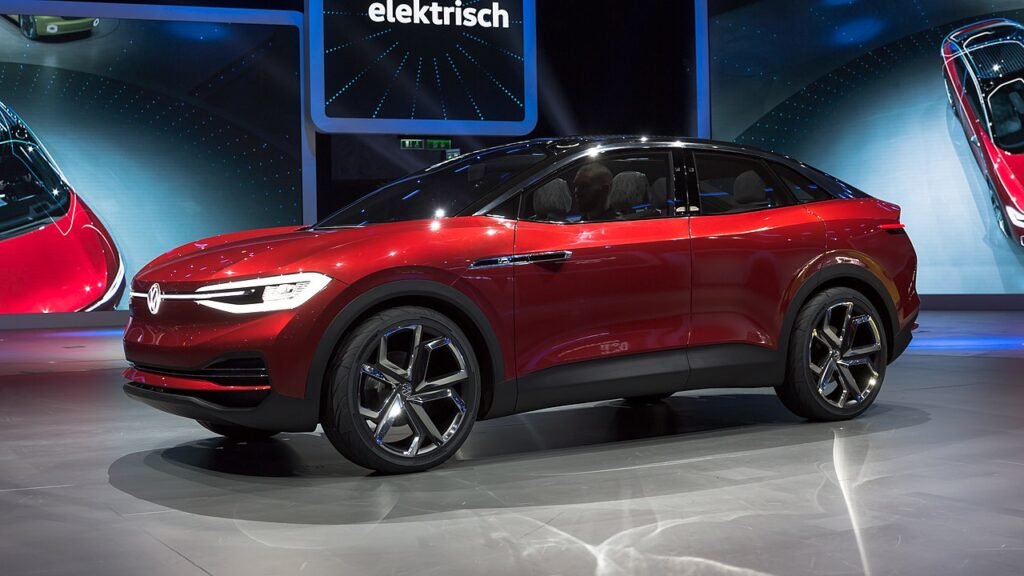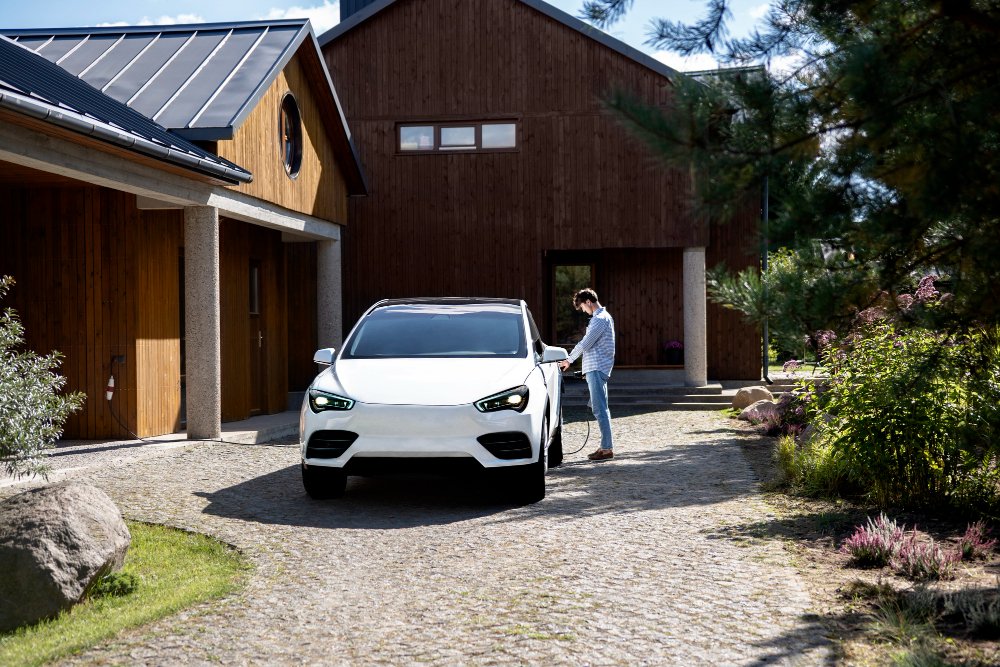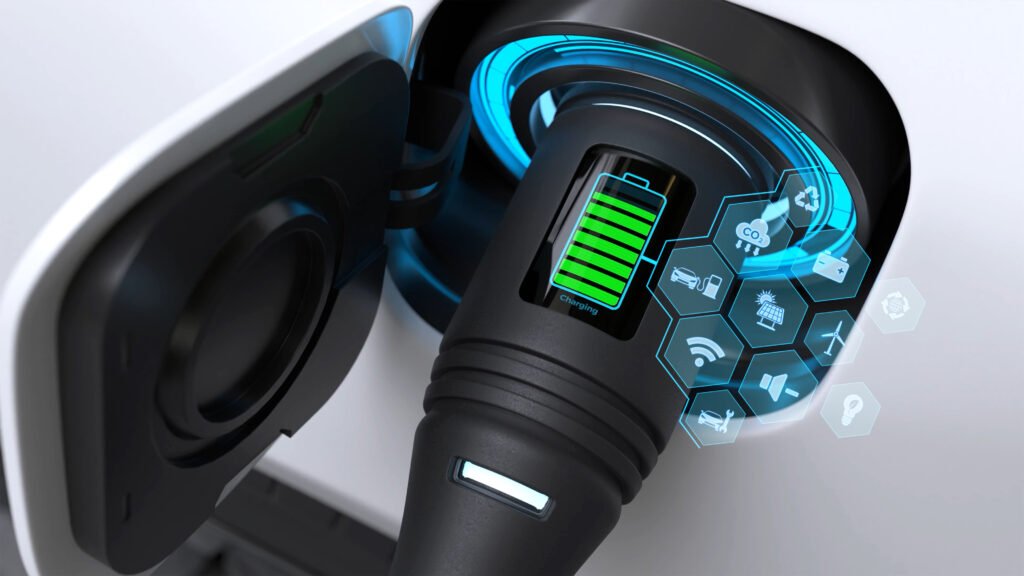The Electric Car Volkswagen ID.4 2025 is one of the most anticipated electric vehicles (EVs) of the coming year, embodying Volkswagen’s commitment to innovation, sustainability, and accessibility in the EV market. Positioned as a compact SUV, the ID.4 has already gained popularity since its initial launch, and the 2025 version is expected to bring enhanced performance, refined design, and improved technology. In this article, we will explore the features of the Volkswagen ID.4 2025, its benefits, challenges, real-world use, and the future trends it represents in the EV landscape.
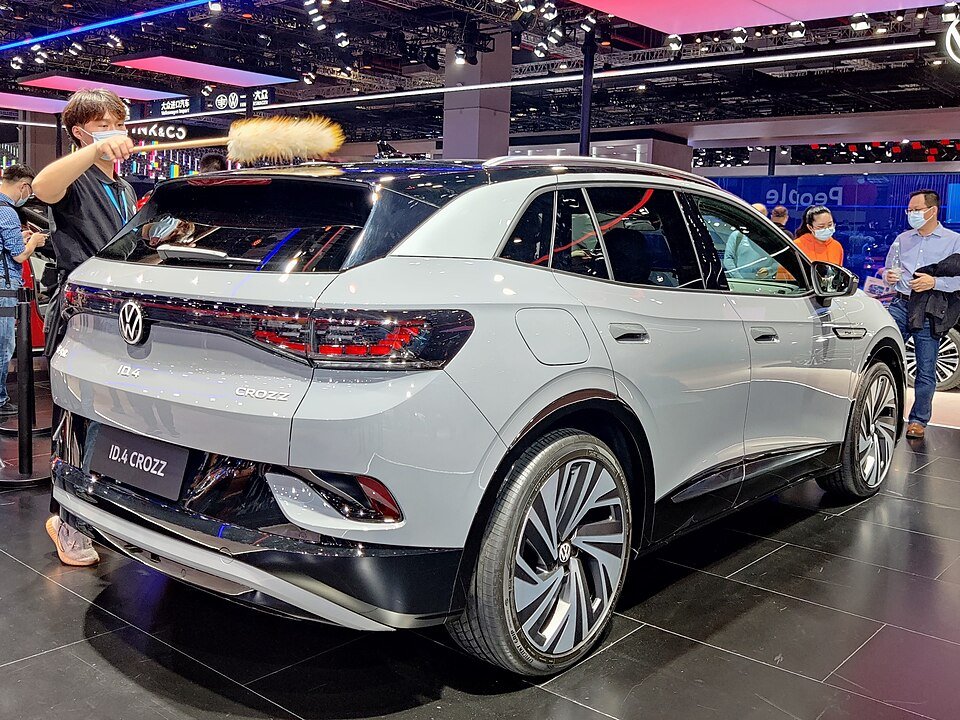
What Is the Volkswagen ID.4 2025?
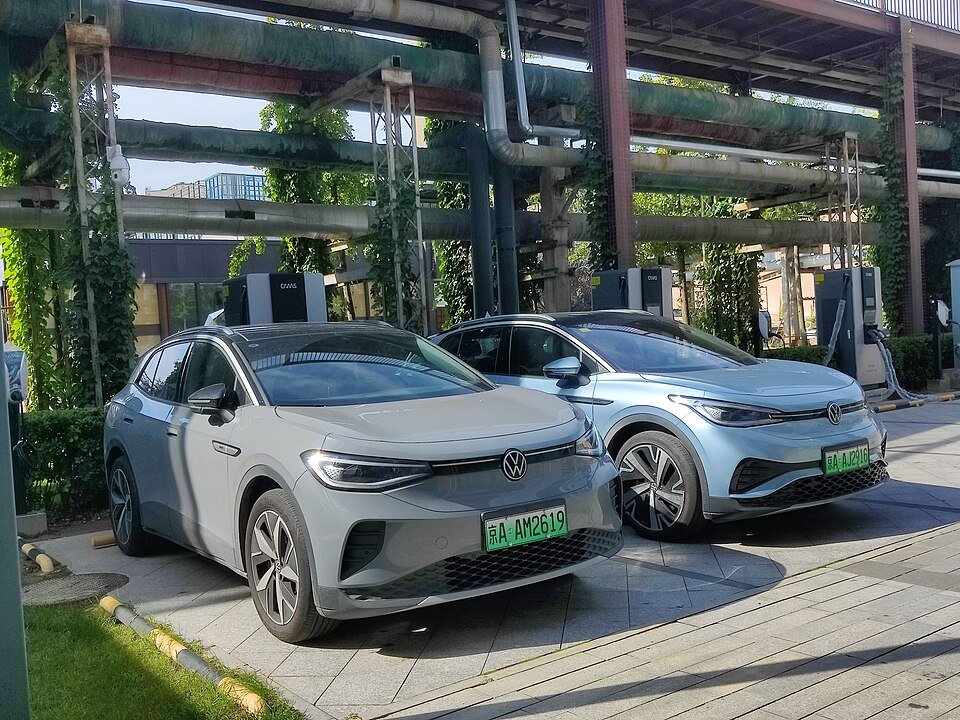
The Volkswagen ID.4 is part of Volkswagen’s ID series, a lineup of fully electric cars built on the company’s MEB platform, designed specifically for EVs. The 2025 version continues to build on the brand’s goal of making electric cars practical and appealing for everyday drivers.
As a compact crossover SUV, the ID.4 combines family-friendly utility with cutting-edge electric performance. It offers impressive driving range, modern infotainment, advanced driver assistance systems, and sustainability-driven design choices such as eco-friendly materials.
Volkswagen, a leader in global automotive production (see Volkswagen Group), aims for the ID.4 to remain central to its EV strategy, especially in markets like Europe, North America, and China.
Key Benefits of the Volkswagen ID.4 2025
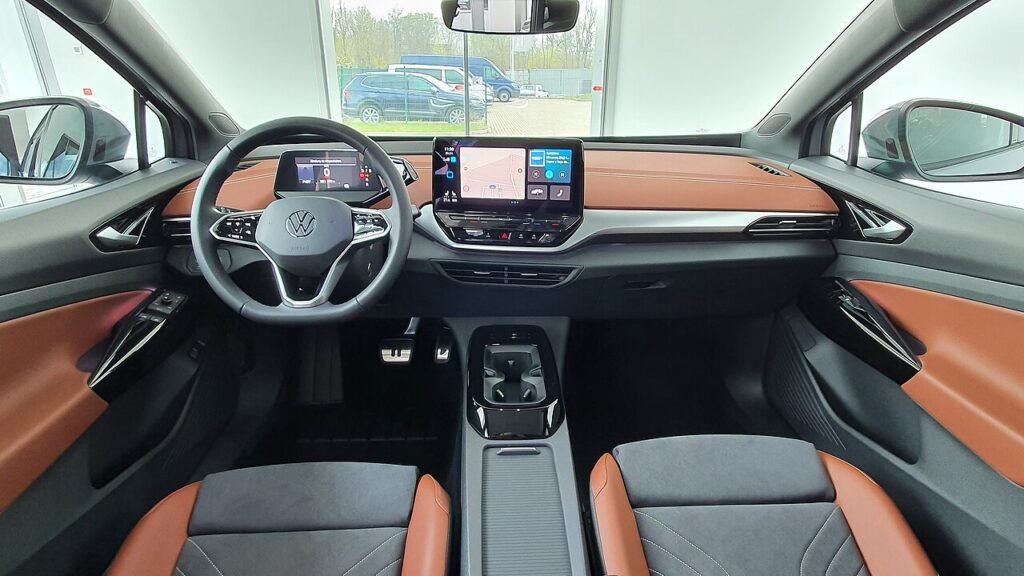
1. Competitive Driving Range
One of the biggest considerations for EV buyers is driving range. The electric car Volkswagen ID.4 2025 is expected to feature battery packs offering ranges exceeding 300 miles on a single charge, depending on the model variant. This positions it as a strong competitor against other electric SUVs in the same segment.
2. Advanced Charging Capabilities
Fast-charging technology allows the ID.4 to regain up to 80% of its battery capacity in about 30 minutes at a high-power charging station. This ensures drivers can travel long distances with minimal downtime.
3. Spacious and Comfortable Interior
As a compact SUV, the ID.4 provides a roomy cabin, ample cargo space, and a family-friendly layout. Volkswagen emphasizes ergonomics, ensuring comfort during both short commutes and long journeys.
4. Affordability and Incentives
Compared to luxury EVs, the ID.4 targets affordability while maintaining high quality. Many markets also offer tax credits and subsidies for EV purchases, making the vehicle even more financially attractive.
5. Sustainability Focus
Volkswagen integrates sustainable materials in the ID.4’s interior, such as recycled fabrics and low-impact plastics. The brand also invests heavily in renewable energy for its production facilities, aligning with its carbon neutrality goals by 2050.
Challenges and Limitations
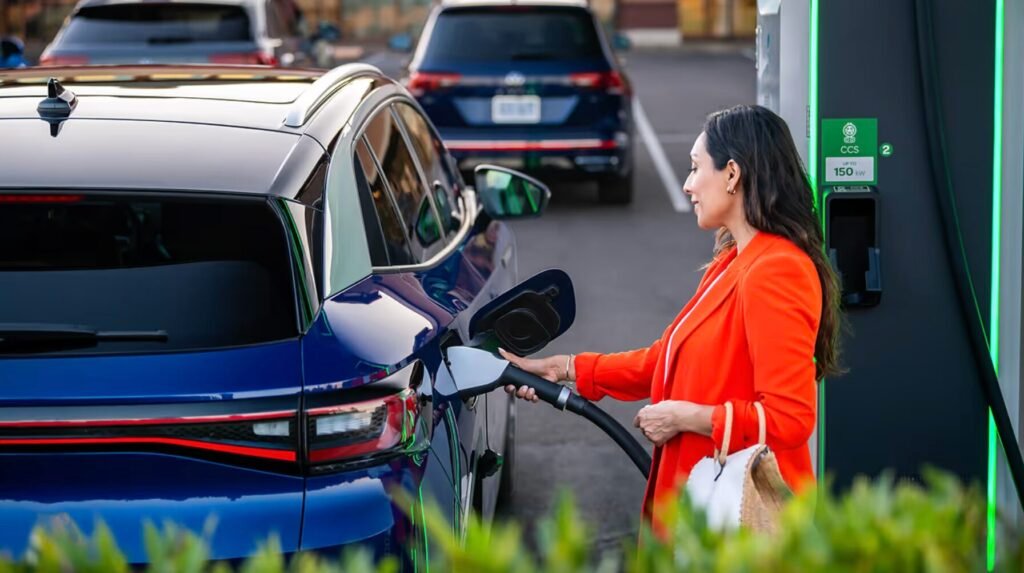
While the Volkswagen ID.4 2025 offers plenty of advantages, there are challenges and limitations to consider:
1. Charging Infrastructure
Although charging networks are expanding, they are still limited in certain regions. For potential buyers in rural or underserved areas, this remains a hurdle.
2. Competition
The EV market is rapidly growing with competitors such as Tesla’s Model Y, Hyundai’s Ioniq 5, and Ford’s Mustang Mach-E. Volkswagen must continue innovating to maintain a competitive edge.
3. Initial Cost
Even though the ID.4 is relatively affordable, some consumers may still find the upfront cost higher than comparable gasoline vehicles, even with long-term savings in fuel and maintenance.
4. Software and Updates
Volkswagen has faced criticism in the past for slow software rollouts and system glitches in its EVs. Ensuring a seamless, reliable digital experience will be key for the 2025 model.
Real-World Examples and Case Studies
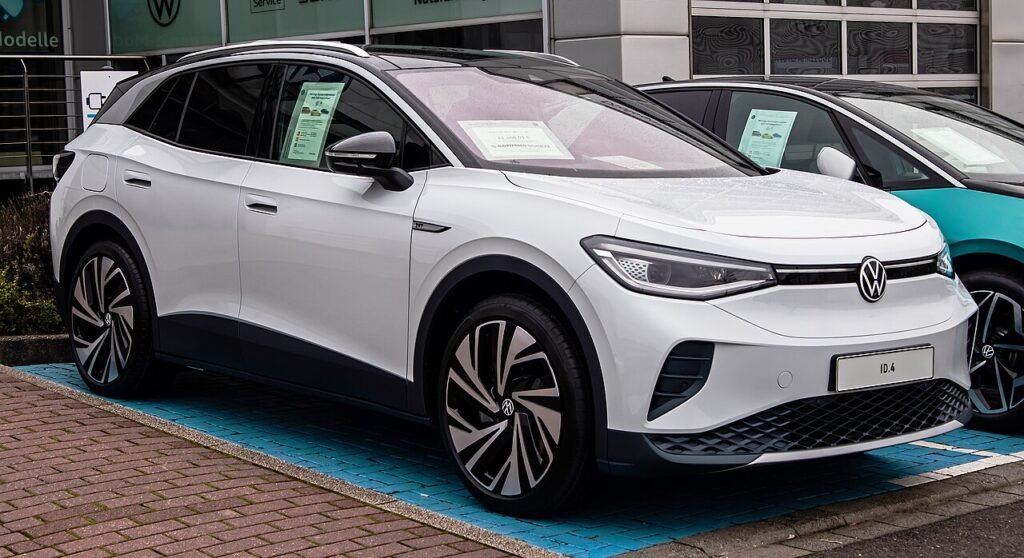
Global Popularity
Since its launch, the Volkswagen ID.4 has achieved success across major EV markets. In Europe, it has been one of the best-selling electric SUVs, competing strongly with Tesla and other manufacturers.
U.S. Market Growth
In the United States, the ID.4 is produced at Volkswagen’s Chattanooga, Tennessee plant, making it more accessible to American buyers. Local production also qualifies the model for federal EV tax credits, boosting its appeal.
Customer Experiences
Drivers praise the ID.4 for its practicality, comfort, and reliability. Many families find it ideal as a primary vehicle, capable of handling both city commutes and long-distance trips.
Future Trends and Predictions for the Volkswagen ID.4
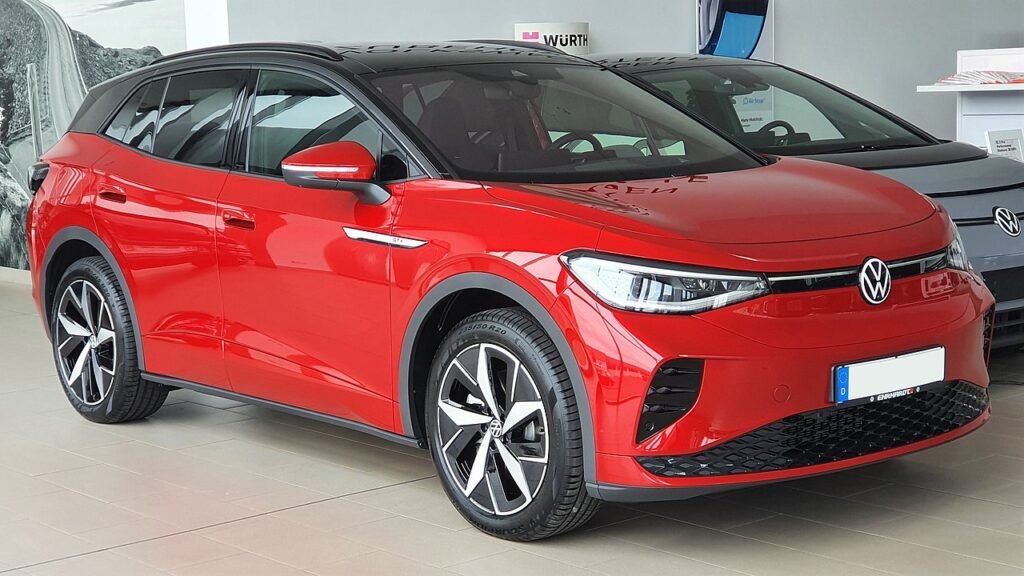
Looking toward 2025 and beyond, the Volkswagen ID.4 is expected to play a vital role in Volkswagen’s electrification strategy.
- Wider Adoption – As charging infrastructure improves and battery technology advances, more consumers will likely adopt the ID.4 and other EVs.
- Software Evolution – Over-the-air updates will continue to enhance vehicle performance, adding new features and fixing bugs seamlessly.
- Autonomous Features – Volkswagen is expected to integrate more advanced driver-assistance technologies, inching closer to semi-autonomous capabilities.
- Sustainability Leadership – By increasing the use of renewable energy and recycled materials, Volkswagen will reinforce the ID.4’s role as a symbol of sustainable mobility.
The broader EV industry is projected to dominate the global automotive market by 2030 (see Electric Vehicle outlook), and the ID.4 is positioned as one of Volkswagen’s strongest contenders.
FAQ
What is the range of the Volkswagen ID.4 2025?
The expected range exceeds 300 miles per charge, depending on the battery size and driving conditions.
How fast can the ID.4 charge?
Using a DC fast charger, the Volkswagen ID.4 2025 can regain up to 80% charge in approximately 30 minutes.
Is the Volkswagen ID.4 affordable?
Compared to luxury EVs, the ID.4 is designed to be more affordable while still offering premium features. Government incentives further reduce costs.
How does the ID.4 compare to Tesla’s Model Y?
The Volkswagen ID.4 offers competitive range, comfort, and pricing. While Tesla has stronger brand recognition, the ID.4 appeals to buyers seeking practicality and European engineering.
Where is the Volkswagen ID.4 manufactured?
The ID.4 is produced in several locations, including Volkswagen’s Chattanooga plant in the U.S., making it accessible for North American buyers.
Conclusion
The Electric Car Volkswagen ID.4 2025 represents the next evolution of Volkswagen’s commitment to sustainable, innovative, and accessible mobility. With its strong range, family-friendly design, affordability, and sustainable features, it is set to remain one of the most attractive EV options in the compact SUV segment. While challenges like charging infrastructure and competition remain, Volkswagen’s continued innovation positions the ID.4 as a leader in the electric vehicle market.
For buyers considering a reliable, eco-conscious, and forward-looking SUV, the Volkswagen ID.4 2025 is worth serious attention.

